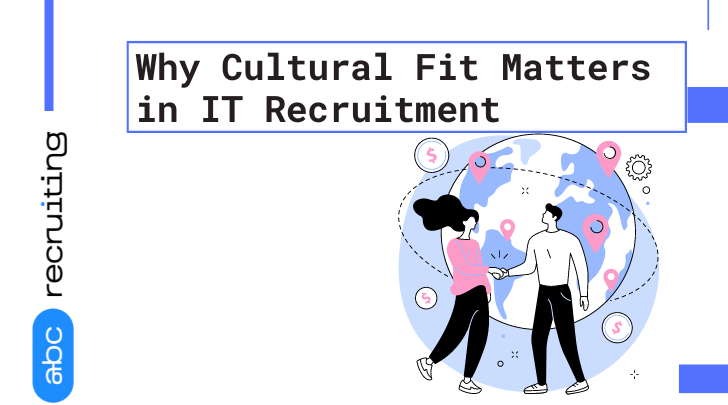Finding candidates who align with your company culture and values is just as important as identifying those with the right hard skills. When a new hire meshes well with the organizational culture, they tend to stay longer, perform better, and boost team dynamics. On the flip side, a poor culture fit can lead to reduced productivity, lack of work satisfaction, and high turnover. As you evaluate candidates, look beyond just their technical chops—make sure their personality, work style, and priorities match what you’ve built your company culture around. The time spent assessing cultural fit will pay off through a more cohesive, productive team and long-term success.
Define Your Company Culture and Values
To find the right IT candidates for your company, you need to define what your culture is all about. What are your core values? What kind of environment do you foster? The answers to these questions will help you determine who will be a great fit.
For example, if innovation and creativity are priorities at your company, look for candidates who show ingenuity and resourcefulness in their work. Ask about side projects they’ve started or new processes they’ve implemented.
If collaboration and teamwork are emphasized, try to gage how well the candidate works with others. Ask about experiences where they had to cooperate with coworkers or lead a team to achieve a goal. See if they use “we” more often than “I” when talking about work accomplishments.
Conversely, if autonomy and independence are important, search for self-motivated applicants who thrive with little oversight. See if they’ve ever had to set their own schedules or work remotely. Question how they stay productive with minimal guidance.
Finding the Right Match
The key is looking beyond just technical skills and really trying to determine if the candidate will mesh well with your company culture. It may take extra effort, but finding recruits who share your values will lead to higher job satisfaction, less turnover, and a more cohesive work environment. And that’s worth its weight in gold.
With the job market as competitive as ever, taking the time to find the right cultural match could be the difference between landing a superstar employee or ending up back at square one. So define those values, craft thoughtful interview questions, and don't settle when it comes to finding someone who fits. Your company culture depends on it!
Assess Candidates for Cultural Fit in the Interview Process
The interview process is your chance to determine if candidates will be a good cultural fit for your company. Look for candidates who share your core values and will thrive in your environment.
Ask questions that reveal the candidate's priorities and work style. For example:
- What do you value most in a work culture? Things like collaboration, transparency, and work-life balance are good signs.
- How would you handle a disagreement with a colleague? Look for answers showing empathy, open communication, and a willingness to compromise.
- What motivates you? Candidates motivated by learning, growth, and team success often do well in a collaborative culture.
- How do you deal with stressful situations? Flexibility, optimism, and a solutions-focused mindset are ideal.
Also assess how candidates interact with others. Do they make eye contact, smile, and seem engaged? Do they ask good questions showing interest in the role and company? Candidates who are curious, personable, and able to build rapport will integrate well into most teams.
An interview is a two-way street. Candidates should interview you as much as you interview them. Be open about your culture, values, and what you offer as an employer. Look for candidates with a genuine interest in and enthusiasm for what your company is all about. With the right questions and interactions, you can find IT candidates who are not just a skills match but a cultural match too. And that will make all the difference in their success and longevity at your company.
Ask Behavioral and Situational Interview Questions
Asking the right questions during the interview process can help determine if a candidate will be a good cultural fit. Focus on behavioral and situational questions that provide insight into their values and soft skills.
Behavioral Questions
Behavioral questions probe how candidates handled specific situations in the past. For example:
- Tell me about a time you had to adapt to changes at work. How did you handle it and what was the outcome?
- Describe a situation where you had to solve a complex problem. What was your approach and what did you learn?
Look for answers that show the candidate is open to change, can think critically, and is a lifelong learner. These traits are important for company growth and progress.
Situational Questions
Present hypothetical scenarios related to your company culture and values to gage the candidate’s response. For example:
- Our company values work-life balance. How would you handle a situation where you felt overworked and unable to unplug during your off hours?
- Suppose you noticed a coworker was often disrespectful towards others. How would you address this issue in a constructive way?
Ideal answers will demonstrate empathy, emotional intelligence and a willingness to resolve issues in a collaborative manner. See if their views align with promoting a healthy, inclusive and ethical work environment.
Using a mix of behavioral and situational questions during the interview process, especially for final round candidates, can provide valuable insight into whether they will thrive in your company culture. Look for those able to demonstrate your key values and soft skills when answering questions. While technical skills are important, cultural fit is a key factor in long term success and satisfaction for both the employee and the organization.
Check References to Gage Cultural Fit
Once you’ve identified promising candidates, it’s time to dig deeper into whether they’re the right cultural fit for your company. Calling on references provided by the candidates is one of the best ways to get insight into how well they may align with your values and environment.
When speaking to references, ask open-ended questions to get a sense of the candidate’s work style, values, and soft skills. For example, you might ask:
- How would you describe the candidate’s working style? Are they collaborative or more independent? Adaptable or set in their ways?
- What are the candidate’s strengths? Weaknesses? Give some examples that demonstrate these.
- How did the candidate handle challenging work assignments or tight deadlines? Conflicts with colleagues? Difficult clients or managers?
- Why did the candidate leave your company? Was it voluntary or involuntary?
- Would you rehire this candidate? Why or why not?
Also listen for enthusiasm and passion in the references’ responses. Lukewarm or hesitant feedback could signal a poor culture fit. On the other hand, references who speak highly of the candidate’s soft skills, work ethic, and values are a good indicator of strong cultural alignment.
Checking references is well worth the time and effort. While a candidate may seem perfect on paper and in interviews, references can reveal their true colors and potential culture clash. Paired with your own interactions, reference feedback helps ensure anyone you hire will thrive in your company and fit right in with the team. With the right questions, you’ll find IT candidates who align perfectly with your culture.
Make an Offer to the Candidate Who Is the Best Overall Fit
Once you’ve identified candidates who are a strong cultural fit, it’s time to make an offer to the top choice. But how do you determine who is the best overall fit? Here are some tips:
Look at technical skills and experience. While cultural fit is crucial, the candidate still needs to be able to do the job. Review how each candidate’s background and expertise align with the requirements of the position. The ideal candidate will have a good blend of both soft skills and hard skills.
Consider future potential. Think about which candidate has the most potential for career growth and advancement in your company. Look for someone ambitious, eager to learn, and open to new opportunities. This can indicate they may have a longer tenure at your organization.
Trust your instincts. All things considered, go with the candidate you have the best gut feeling about. Your instincts, combined with the data you’ve gathered during the screening and interview process, will steer you toward the right hire.
Once you’ve weighed all these factors, make an offer to your top candidate. Be prepared to potentially negotiate salary and benefits. If they accept, congratulations! You’ve found an IT professional who is ready to dive in and become part of your company culture.
On the other hand, if they decline your offer or negotiations fall through, don’t lose hope. Go back to your list of qualified candidates and make an offer to your second choice. While cultural fit is important, there are likely other great candidates who would be thrilled to join your team. With the right onboarding process, they can get up to speed on your company values in no time.
The key is to stay patient and trust that the best overall fit for your needs is out there. Keep looking, and you’ll find the IT specialist who aligns perfectly with your company culture.




